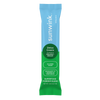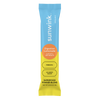Are Cold-Pressed Juices Healthy? The Pros & Cons

Between popular juice cleanses and readily available bottled juices, it seems like juicing has taken the world by storm. And we definitely get the appeal of getting your nutrients from a sweet, fresh juice. But are juices actually healthy for you?
Well, the answer is more than a simple yes or no. This guide from Sunwink gets down to the nitty-gritty, explaining all the pros and cons of drinking cold-pressed juice.
What Are Cold-Pressed Juices?
Whether your thing is orange, apple, cranberry, or something else altogether, you’re no doubt familiar with fruit juice. But not all fruit juices are made the same. Depending on how it’s made, the fruit juice you drink may have different health and wellness benefits.
Cold-pressed juice is one of the most popular types of juices, best known for how it preserves the vitamins and nutrients of different fruits and vegetables.
Let’s compare cold-pressed juice to traditional juices.
Traditional juices use a high-speed juicer with fast spinning blades to break apart fruit and vegetables. While this process effectively separates the pulp from the juice, it can also generate lots of heat. Heat is known to destroy nutrients in plants, so regular juice doesn't deliver as many vitamins and minerals.
To solve this problem, cold-pressed juices use a cold-pressed juicer that features a hydraulic press, which extracts the highest amount of liquid possible without creating heat. This juicing process keeps nutrients intact, making cold-pressed juices a great option for your overall health.
What Are the Benefits of Cold-Pressed Juice?
If you’re juicing for health and wellness benefits — and not just the taste — then you may be curious about what’s in it for you.
Here are just some benefits of drinking cold-pressed juices:
1. More Nutrients With Less Chewing
Many doctors, nutritionists, and dietitians recommend eating a few servings of fresh produce at every meal. Colorful fruits and veggies are chock-full of vitamins, minerals, antioxidants, fiber, and many other nutrients that keep you healthy.
While it’s definitely worth it, chewing an entire salad during your short lunch break isn’t exactly easy.
Fortunately, a cold-pressed juice requires virtually zero work. If you’re short on time, then a cold-pressed juice can be a super easy way to get your nutrient fix.
Just keep one thing in mind: Juices can’t entirely replace whole foods. You still need the fiber that comes from eating intact fruits and veggies. But cold-pressed juices are definitely an effective way to make up for missing nutrients.
2. More Palatable Veggies
We all have some veggies that we simply don’t enjoy. Instead of nixing them from your diet completely, how about mixing them with other delicious ingredients to make them more palatable?
Considering that each plant has hundreds, if not thousands, of unique phytochemicals, juicing your least favorite veggies can ensure you’re not missing out on anything.
3. Support Gut Health
At Sunwink, we’re all about gut health. That’s why so many of our Sparkling Superfood Tonics and Superfood Powders are made to support your microbiome.
Plants are chock-full of prebiotics, which act as food for your healthy gut bacteria. By nourishing your gut bacteria with plenty of Superfoods — in cold-pressed juice form — you can ensure that they thrive and do awesome things for your health.
4. Support Immune Function
Unlike traditional juices, cold-pressed juices are usually served fresh. This means that they retain more nutrients from the veggies (and fruit, roots, and herbs) that they’re made from.
Aside from that, cold-pressed juice is a super-concentrated form of fresh produce. Depending on what it’s in it, a glass of juice is a great way to get a megadose of vitamins and minerals that are known to support immunity.
For instance, fresh orange juice is full of vitamin C, a popular immunity ally. And cold-pressed juice made from beets is full of zinc, which helps the body create more antibodies.
Since cold-pressed juices contain juice from many fruits and veggies in just one glass, you’re sure to get lots of nutrients that boost the immune system.
5. Easier Digestion
Fiber is important, but not everyone can process it in the same way. After eating certain veggies, you may find yourself gassy and bloated. To get your nutrients all the same, a glass of cold-pressed juice may be just as effective — but much easier on your digestive system.
If you’re looking to skip the pricey juice bar, reach for our Detox Greens Superfood Powder with celery, spirulina, and dandelion.
What Are the Cons of Cold-Pressed Juices?
This whole time, we’ve been singing the praises of cold-pressed juice – but that doesn’t mean that there are no downsides to drinking it. The truth is, there are quite a few, and knowing them is pretty important.
Here are some of the cons of cold-pressed juices:
1. It’s Low in Fiber
Cold-pressed juices are very low in fiber, a nutrient that’s essential for healthy digestion. Their low fiber content can make them easier to digest for some people. However, this also means that anyone who drinks cold-pressed juices should complement them with a diet rich in whole fruits and veggies.
2. It’s High on the Glycemic Index
Because juice has virtually zero fiber, it gets digested super quickly. On the one hand, this can give you a quick boost of energy. But on the other, it can quickly spike your blood sugar levels — and drop them just as fast.
The glycemic index (GI) measures how quickly foods and drinks do this. On the GI, juice may be as high as 70 — which is not too different from white rice! So, if blood glucose is a concern for you, then moderating juice consumption may be a good idea.
3. It Won’t Keep You Full
Because cold-pressed juice is low in fiber and high on the glycemic index, it’s not the best drink for keeping you full. Drinking too much juice may even add calories to your diet and hinder your weight loss efforts. So, while it’s a great addition to a satiating meal, juice is definitely not a replacement for one.
How Can I Juice the Healthy Way?
Not all cold-pressed juices are made the same. Some definitely have more health benefits than others. Plus, some readily-available juices contain added sugars and preservatives to increase shelf life.
While grabbing a ready-made, cold-pressed juice is certainly convenient, sometimes making your own is a healthier option. Plus, homemade juice contains the same delicious nutrients without the price tag.
Here are some ways to make sure that your cold-pressed juice is as healthy as can be:
1. Use More Vegetables Than Fruits
Who doesn’t love a glass of orange or apple juice? Their sweetness combined with tart profile makes them super delicious. But their high sugar content makes them somewhat of a healthy “treat,” as opposed to a true wellness beverage.
To make your cold-pressed juice lower in sugar (and higher in nutrients like potassium, enzymes, and iron), use as many veggies as you can.
This can include any of the following:
- Cucumbers
- Celery
- Kale
- Spinach
- Broccoli
- Parsley
- Wheatgrass
But keep in mind: While beets and carrots are technically vegetables, they’re also higher in sugar than most. So, similar to fruit, try keeping them to a minimum.
2. Drink It Fresh
In general, the fresher the juice, the more nutrients it will contain. After all, light and air are known to break down nutrients. Plus, it’ll taste much better immediately after you make it.
If you must save your juice for later, try drinking it within 48 hours of making it.
And when you drink it, consider doing so on an empty stomach. When your body isn’t digesting other foods, it’s much easier for it to absorb the vitamins and minerals that come from your cold-pressed juice.
3. Consider Adding Fat & Protein
You can take cold-pressed juice to a whole new level by adding healthy fats and proteins to it. This can help increase your nutrient intake and also keep you full for longer.
For healthy fats, we recommend adding a few drops of flaxseed oil or a teaspoon of chia seeds. For a boost of protein, consider adding some protein powder that goes well with the juice’s flavor.
With a hefty dose of fat and protein, your body will more slowly digest the juice. As a result, you may feel full for longer — and may even replace a full meal with a cold-pressed juice.
Top 3 Cold-Pressed Juices and Their Benefits
When it comes to making cold-pressed juice (or finding one in a juice bar or grocery store), the sky is the limit. After all, there are so many different flavor combinations to play around with.
You can make a cold-pressed juice with any of the following:
- Dark, leafy greens: Kale, spinach, broccoli
- Other non-starchy vegetables: Tomatoes, bell peppers, jalapeños
- Roots: Beets, ginger, turmeric
- Herbs: Mint, basil, wheatgrass
- Berries: Raspberries, blueberries, strawberries
- Fruits: Apples, oranges, pears
Of course, combining the right ingredients is key for something that actually tastes good and provides you with targeted benefits.
So, with that being said, here are three recipes for delicious cold-pressed juices.
1. The Power-Packed Green Juice
What You'll Need:
- 1 bunch kale
- 5 stalks celery
- 1 green apple
- ½ peeled lemon
- 1 small piece of ginger
Why It Works: Aside from being incredibly high in vitamins and minerals, this juice contains a few of our favorite Superfoods. For instance, celery is known to soothe irritation, while ginger provides excellent digestive support. And, unlike many green juices, this one tastes super yummy.
If you’re looking for an even easier way to get your greens in, try our Detox Greens Superfood Powder with celery, spirulina, spinach, and dandelion extract.
2. Red Beet Juice
What You'll Need:
- 1 red beet
- 2 carrots
- 4 stalks celery
- 1 green apple
- 1 small piece of ginger
Why It Works: Beets are known to increase natural levels of nitric oxide, which can support healthy circulation. The result? That age-defying glow that everyone wants. And by adding a few other colorful veggies, you’re significantly boosting your juice’s nutrient content.
3. Sweet Carrot Juice
What You'll Need:
- 3 carrots
- 1 orange
- ½ cup pineapple
- Small piece of ginger
- Small piece of turmeric
Why It Works: Carrots are chock-full of antioxidants, which may reduce irritation in the body. And adding more soothing ingredients like pineapple, ginger, and turmeric only compounds these benefits.
Looking for Alternatives to Cold-Pressed Juices?
We get it: Cold-pressed juices aren’t for everyone. They’re not exactly the easiest to make. Plus, their high calorie content (and low satiety value) doesn’t make them everyone’s favorite wellness beverage.
That’s why we created our Sparkling Superfood Tonics and Superfood Powders. Low in sugar and high in wellness-promoting Superfoods, Sunwink’s beverages can be just what you need to supercharge your wellness journey.
Sources:
Which vitamins boost the immune system? | Live Science
Zinc and its importance for human health: An integrative review | PMC






